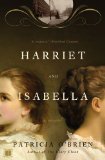Book Club Discussion Questions
Want to participate in our book club? Join BookBrowse and get free books to discuss!
Please be aware that this discussion guide will contain spoilers!
Discussion Points
-
On page 10, Harriet tells a young Isabella that hypocrisy is
the enemy of truth, the coward's way out. What circumstances prompt this moral
proclamation, and how deeply does it affect Isabella?
-
Discuss Harriet's and Isabella's opinions of each other as
each reflects on the past while Henry lies dying.
-
After seeing a woman struck by her disapproving husband at
Anna Dickinson's speech in Hartford, Isabella realizes how closely paralleled
are slavery and the treatment of women, especially underprivileged women. What
similarities do you see in the abolition and women's suffrage movements and
their philosophies as described in this novel? Do you agree that the situation
of the slave and that of the nineteenth-century woman is similar? Why or why
not?
-
Mary Beecher points out to Harriet that betrayal is never
simple. Consider those characters accused of betrayal in this novel, such as
Isabella, Frank Moulton, Elizabeth Tilton, and Victoria Woodhull. Why do you
think these characters did what they did?
-
Henry is furious with Isabella, yet Harriet is the one who
leads the family in ostracizing her. How much of Isabella's supposed betrayal
does Harriet take personally? What clues tell you that Harriet's outrage and
hurt may be more about Harriet herself than on Henry's behalf?
-
How does Isabella's role as the "baby" of the family affect
how she leads her life? How much do you think it influences her commitment to
the suffrage movement and to Victoria Woodhull?
-
When Isabella confronts Henry about his supposed affair with
Elizabeth Tilton on page 125, why is she so sure that he's lying? What does she
mean when she says that the contempt in his voice is so telling?
-
In addition to the belief that Isabella's pleading note to
Henry only adds to the public appearance of his guilt, the Beecher siblings seem
to feel that the very idea Isabella proposes -- to admit his guilt and ask
forgiveness of his congregation -- is insane. What do you think? Is Isabella
naïve to think that Henry's admission would really end the scandal and promote
healing?
-
In a private moment of honesty, Tom Beecher tells Isabella
that he believes that Henry has slippery doctrines of expediency. What do you
think drove Victoria to attack him? How much do her motives influence how her
actions are judged? How much should her motives matter?
-
Why isn't it enough for the Beechers that Isabella promises
that she'll say nothing about the matter for the rest of her life? What are they
more upset about -- Victoria's claim that Isabella confirmed Henry's guilt to
her in private, or that Isabella thinks Henry actually is guilty?
-
Why is Isabella so adamant in refusing to defend her brother
when she does not, in fact, know that he is guilty? Why is she more willing to
believe the rumor mill and Victoria Woodhull than her own brother?
-
Isabella has a vivid imagination. What do you think her
dreams described on pages 165 and 172 symbolize?
-
On page 184, Harriet becomes irritated by the organization
of jurors' chairs, saying that she "wants symmetry." What does this reveal about
her personality? Does it give you insight into her actions?
-
Why is Isabella unable to convince her sisters of the
importance of supporting the women's suffrage movement? As members of an
esteemed family, do you think privilege keeps the Beecher women from
understanding the plight of the ordinary wife? How else does being privileged
affect how the Beechers see and interact with the world?
-
In the wake of Henry's death, Harriet wonders if her loyalty
has been less a moral choice and more a way to avoid uncertainty. What do you
think? Were both sisters "blind to the costs of stubborn loyalty," as Isabella
puts it? Does loyalty take precedence over truth? Would the truth in this
situation have precluded Harriet's and the other Beechers' ability to be loyal
to Henry?
Enhance Your Book Club Experience
- Throughout the novel, there are references to many important
political and social events that occurred during the mid- to late-nineteenth
century, a rich time in American history. Do some research on any historical
figure or event from 1852 to 1887, from the abolitionist, women's suffrage,
spiritualist, or labor reform movements, to share with your book club.
- Harriet Beecher Stowe's novel, Uncle Tom's Cabin, is
credited with single-handedly waking America up to the evils of slavery and
fueling the abolitionist movement. Today, many Hollywood versions are available,
including the acclaimed 1987 made-for-TV movie starring Avery Brooks, Samuel L.
Jackson and Phylicia Rashad. Rent one of these versions and watch it with your
book club or on your own prior to your next meeting.
- The Beecher family has been called the "Kennedys of their
time." Do a little research about the members of the Beecher clan and see how
the historical information available lends credence (or contradicts) the
fictional accounts given in Harriet and Isabella.
Unless otherwise stated, this discussion guide is reprinted with the permission of Touchstone.
Any page references refer to a USA edition of the book, usually the trade paperback version, and may vary in other editions.




